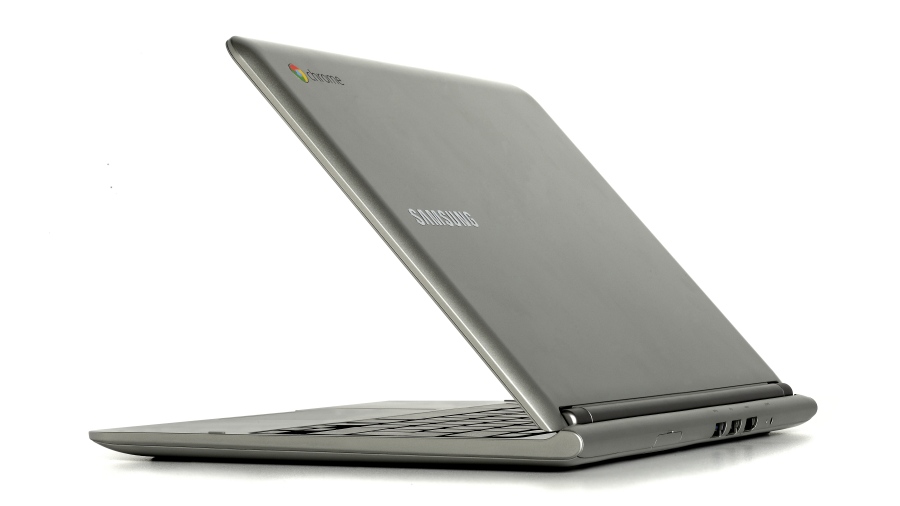Why you can trust TechRadar
We've always liked the promise of the Chromebook idea.
Traditional computer users will sneer at it, despite its low price. They'll use phrases like 'full-fat operating system', 'no local storage', 'just an ARM processor'. They'll ask what use it is when it's not connected to the internet.
They miss the point.
Google say this is a computer 'for everyone' in big blue letters on the Chromebook homepage. This is hubris. It's not the computer for everyone, not by a long shot.
However, it is a very good little machine that should appeal to a few distinct groups.
First, if you're on a budget, here's a brand new computer for £229.

Second, if you already heavily use Google's online services (including if you use Google Apps to manage your business's domains, email and so on), signing into your Chromebook will feel like home, instantly.
Third, if most of your life is done through a web browser anyway, and there's nothing stopping you doing the rest of it online too, then you could argue that paying even £399 for a cheap Windows laptop that has more storage, more power and can run normal apps is a waste of money.
And perhaps more importantly, if you think you could be the sort of person who could do all their computing using web apps, you could well benefit from the good battery life, silent operation, light weight and portability, simplicity and implicit security of the Chromebook, not to mention its price.
We liked
It always takes a few days for you to really 'get' the Chromebook – though that period is shorter if you're a card-carrying Google aficionado who uses Gmail, Docs, Calendar and so on all the time anyway.
But once you get it, it gets under your skin. The simplicity and security of it – a nice compromise between the one-app-at-a-time mode of the iPad, say, and the potential complexity of a traditional computer – is refreshing and welcome.
It's also cheap, light, easy to use, silent, reasonably well built, innovative and, broadly, a pleasure to use.
We disliked
Though the offline mode supported by some apps mitigates against the problem, we would nevertheless have preferred a model that had 3G as well as Wi-Fi; the Chromebook needs to access the internet in order to be able to do meaningful work, and even if you're in range of Wi-Fi most of the time, or carry a smartphone to which you can tether, it could still prove frustrating.
The sporadic crashes irked, and the build quality issues niggled – that grainy, washed-out screen being the worst offender.
What's more, media playback is sketchy, and while it would technically be possible to edit video using YouTube, we'd strongly counsel against it.
This is a laptop for browsing, writing, Facebooking and the like, and if you buy it without carefully thinking through what you use a computer for and deciding that one that only runs a web browser would suffice, you could be in for nasty surprises; even if there's just one tiny app that you use on a traditional computer that can't be comfortably replicated online, never mind if you rely on something like Adobe InDesign or want to play Medal of Honor, the Chromebook's not for you.
There are no niceties such as a back-lit keyboard or Apple's clever MagSafe connector.
Final verdict
Traditionally, we'd have said that a Chromebook isn't good enough to be your primary computer, and in too crowded a market with smartphones and even tablets, to consider as a second computer.
Things change, though. It's not the technologies that change – broadband speeds and processor power haven't changed all that much since the Chromebook was announced late in 2010 – but what is beginning to change are our habits and priorities.
Where five years ago lots of people would have preferred desktop email clients to webmail, for example, these days millions of us access Gmail in browsers without giving it a second thought.
With that in mind, we think we might just be at a tipping point for the Chromebook concept.
This latest model is good, and for lots of people would be perfectly sufficient as a primary computer.
It's a great cheap machine for students (so long as your campus has Wi-Fi), and not in a patronising way; younger folks are more likely to be happy using web apps rather than traditional programs anyway.
And actually, it could be a useful second machine, especially if your primary computer is a desktop tower or all-in-one, or even just a bulky, heavy laptop. It's a good chuck-it-in-a-bag-and-head-to-Starbucks-to-get-some-work-done machine.
It is, ultimately, good at doing the thing it's designed to do. All you have to do is decide if that thing is right for you.
